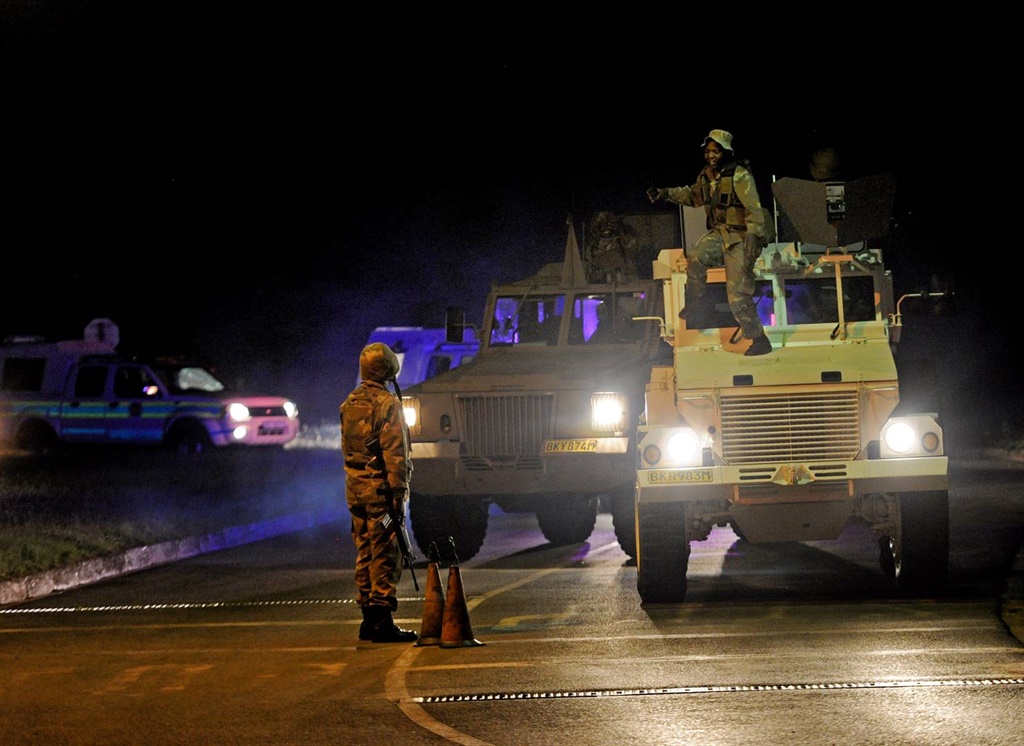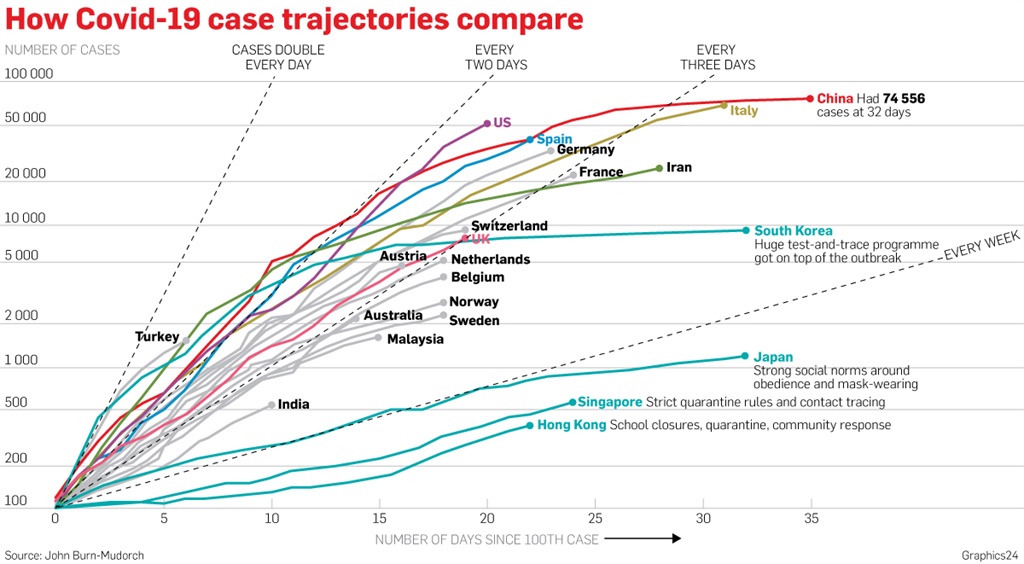
It is day three of the 21-day national lockdown, aimed at “flattening the curve” of the Covid-19 coronavirus outbreak that has taken over South Africa. Over just a few months, it has spread like wildfire across the globe, leaving a trail of death and devastation in its wake. Experts agree that in this country, it is likely to get worse before it gets any better. And, they say, we still have a long way to go before we flatten the Covid-19 curve.
“All the testing that has been happening until now is really only reflecting the people who may have contracted the coronavirus between a week and two weeks ago,” said Dr Kerrin Begg, a public health specialist from Stellenbosch University, speaking to City Press this week. “So, that means the numbers we are seeing today are reflecting infections from two weeks ago, more or less.
“At the moment, we are not yet seeing the impact of the declaration of a national state of disaster [announced by President Cyril Ramaphosa on March 15], which limited some of our movements. We will only see that from this weekend onwards.
“In terms of the national lockdown, we will only see its potential impact two weeks into it.”
By Friday, South Africa had recorded its first death from the virus. According to the latest update from the health department yesterday, 1 170 people have the virus, with the numbers almost doubling every two to three days.
“Without decisive action, the number of people infected will increase rapidly from a few hundred to tens of thousands, and within a few weeks to hundreds of thousands,” Begg said.
Ramaphosa’s declaration of a national state of disaster paved the way for the promulgation of a number of regulations, resulting in the restriction of mass movement and strict limits being placed on the gathering of people – all in an effort to stave off the spread of Covid-19.
But even with those restrictions in place, the real onslaught is still to come, experts warn.
“What we are aiming to do is to flatten the curve,” said Begg. “Remember, we are seeing new cases every day, so we want the rate of the new cases to be as slow as possible, so that we can buy time for our hospitals to be able to cope when the sick patients come… The virus will spread; it’s just a matter of how fast.”
But how effective is a national lockdown?
“A lockdown on its own does not kill the virus,” said Shabir Madhi, professor of vaccinology at the University of the Witwatersrand.
According to Madhi, what will be key, over and above the lockdown, is social distancing. This involves people staying at home, and going out only for medical necessities or to buy food or collect social grants. It also involves the cessation of public gatherings. People should only be allowed to travel when absolutely necessary.
“What you also need to do in the context of a lockdown is identify individuals who are infected – which means you need widespread testing at community level,” added Madhi.
“You will then need to isolate those individuals [who test positive for the virus], identify their contacts and put them in quarantine for at least 14 days. And the people identified as being infected need to be in isolation for at least 14 days until they become completely asymptomatic.”
Madhi was more conservative than Begg in his estimation of when the country would see the impact of the current lockdown, saying South Africa would only be able to assess its success after the 21-day period.
“The big challenge we face in the South African context of the lockdown is that the tools required to identify cases in the community [test kits], and then everything that goes with that [such as setting up places of isolation and quarantine], are unfortunately not yet in place.
“The department of health is on record as saying that it will soon get up to 35 000 tests done a day, but health officials need to be asked when that will be possible and what their capacity will be.
“Until last week, our testing algorithm was focused on people who had travelled to other countries or who had been in contact with those who had travelled. But now that has almost become redundant because we see community transmission cases.
“In that context, we need to have a very low threshold in terms of who we test,” Madhi said.
He pointed to the likelihood of social distancing having to be enforced for at least four to five months after the 21-day national lockdown ended.
Right now, Begg said, the country was “incredibly lucky” in that most people who had tested positive were managing well at home.
She added that even well-resourced countries had not reached the numbers of infections South Africa had without suffering fatalities.
On Friday, Health Minister Zweli Mkhize confirmed that a 48-year-old woman, who was being treated for Covid-19 at a Western Cape hospital, had died.
“We have very few cases that need hospitalisation and even fewer that need ventilation,” said Begg. “This is our big worry. We are going to be getting a lot of cases, period. The onslaught or tsunami is coming; it is just how big the tsunami is going to be that’s in question.
“So, what we want is for people to isolate and not for people to be mixing with others. This is because we are seeing sporadic cases where people do not know where they got Covid-19 from.
“They did not get it from international travel, they did not get it from local travel and they did not get it from a known case. So, there are sporadic cases floating around. What people need to understand is that the best thing they can do is just to stay at home,” she said.
“We hear people say: ‘Well, I’m going to continue with my life, you can’t limit me.’ But actually, when you’re sick, you want to have a doctor, a bed and a ventilator available. So, everybody must just do their part. Just think you’re being a superhero by staying at home.”




 Publications
Publications
 Partners
Partners










